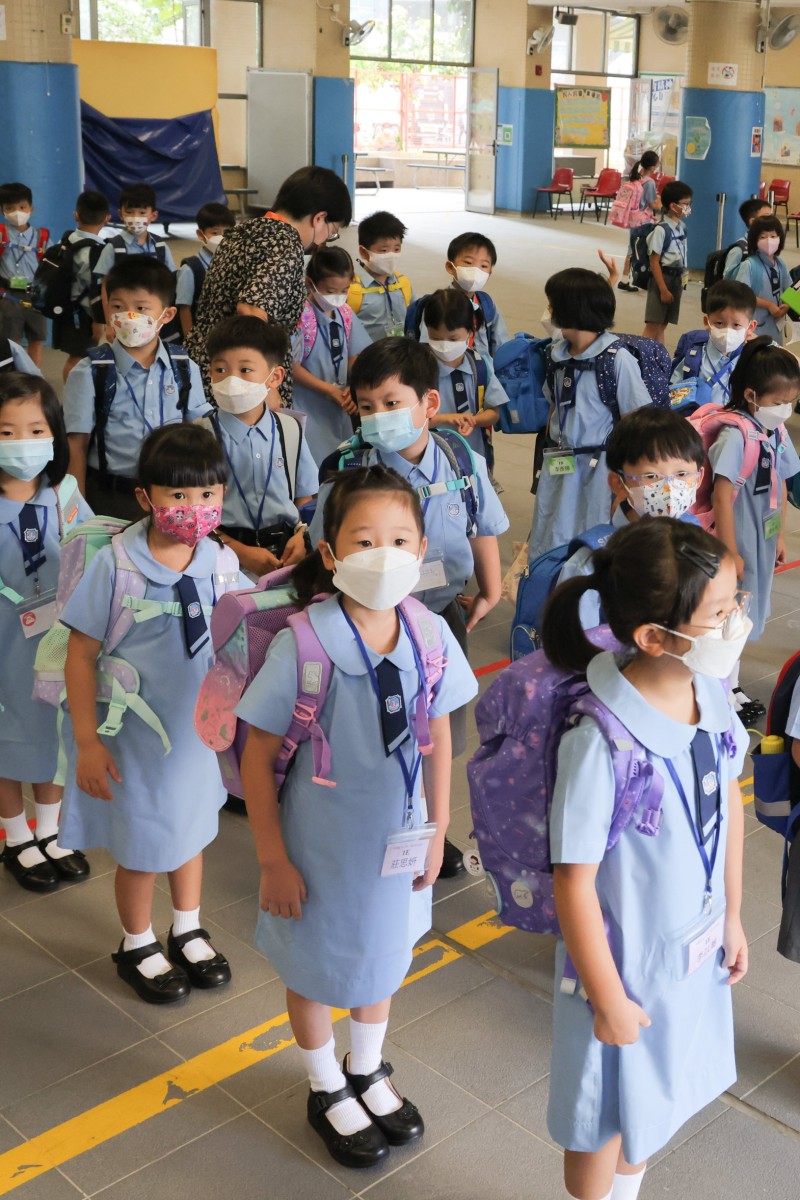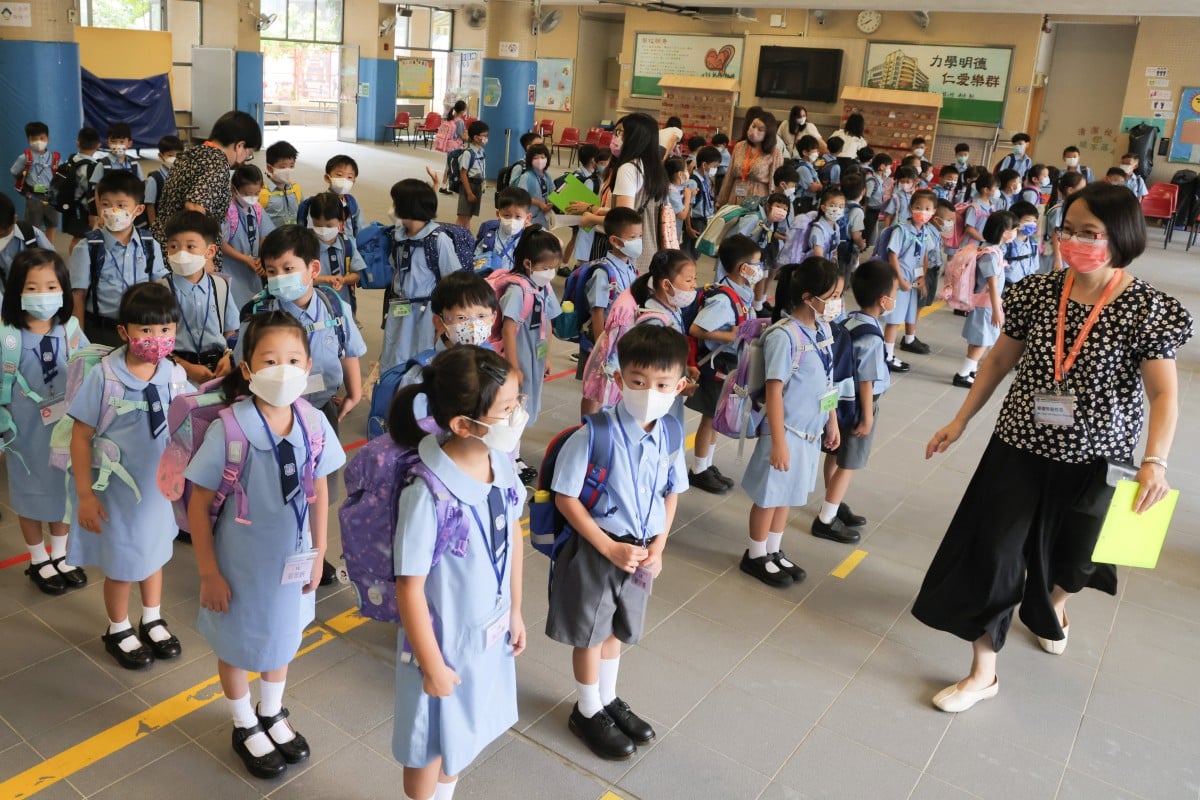
- Number of pupils taking part in allocation process dropped to 43,755 from 48,000 in previous intake, Education Bureau says
- ‘I think most of the parents will be happy this year,’ education sector lawmaker says, but adds some families still likely to pursue top school choices
 More than 90 per cent of students in Hong Kong secured a spot at one of their top three choices for public primary school this year. Photo: Jelly Tse
More than 90 per cent of students in Hong Kong secured a spot at one of their top three choices for public primary school this year. Photo: Jelly TseMore than 90 per cent of students in Hong Kong have secured a spot at one of their top three choices for public primary school, the highest rate in 15 years, education authorities have said as competition for places eases.
In Hong Kong, Primary One places in public schools are allocated using a two-stage process. The results of the first stage, the discretionary admission phase, for the 2023-24 academic year were announced in November, while those for the second part will be revealed next Wednesday.
The overall success rate for both stages reached 91.2 per cent, the Education Bureau said on Thursday. The rate is the highest since the 2009-10 allocation.
The reduced competition for Primary One spots came as the current number of six-year-olds joining the allocation process fell to 43,755 from the 48,080 who signed up for 2022-23, under the combined effects of an emigration wave and declining birth rates.
A total of 21,724 pupils last November were allocated places in the discretionary admission phase, while another 20,355 took part in the central allocation exercise after initially failing to get a space.
Some 82 per cent of those taking part in the second phase received one of their top three school choices, after the number taking part fell by around 2,500 from the previous allocation.
The remainder were believed to have pulled out of the allocation process, with some potentially enrolling at private or direct subsidy scheme schools or having left the city.
The bureau will assign time slots for parents to register with their child’s allocated school on June 13 or 14.
Parents who are unhappy with the results could find it harder to switch schools this year, after authorities earlier in the week said they would cut the number of classroom places available under an informal “door-knocking” practice.
Under the new arrangement, the number of such places on offer at aided primary schools will be reduced from two to one in classes with 25 pupils, and from three spots to two in a 30-strong class.
Public schools currently run more than 1,700 Primary One classes.
ESF schools change residence policy, giving parents and students more options
Education-sector lawmaker Chu Kwok-keung said he believed disappointed parents would still opt to approach schools directly.
“Parents are aggressive in signing up for their preferred schools, though I think most of the parents will be happy this year,” said Chu, a primary school principal.
However, he noted that about 42,000 six-year-olds enrolled at public schools were far fewer than the more than 56,000 births recorded in 2017.
Chu said he hoped the bureau would provide clearer guidance to schools to help them manage under-enrolment issues resulting from the city’s shrinking student population.
Hong Kong school facing closure barred from setting up private Primary One classes
Langton Cheung Yung-pong, honorary chairman of the Hong Kong Aided Primary School Heads Association, said the high satisfaction rate was due to fewer students leading to less competition.
But the principal said he expected some parents would still want to try for better schools even though their children got their first choice.
“Sometimes parents are quite strange, as they may find out other kids were allocated a school that they may want, and they may want to try to approach the school,” he said.
“But this year, their chance will be affected by the reduction of door-knocking places.”